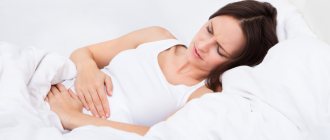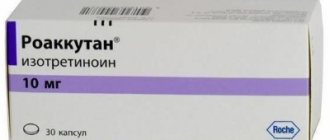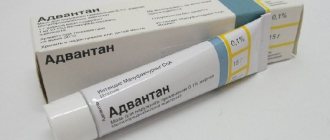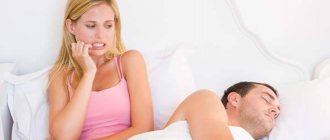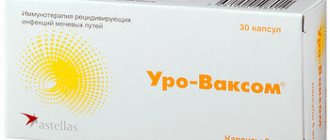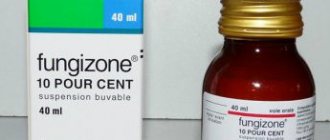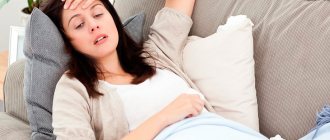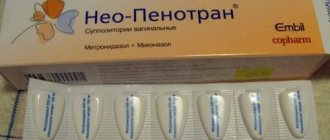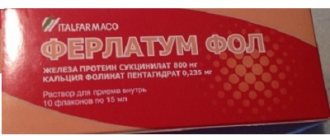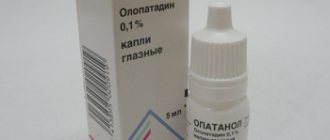Acnecutane tablets are a potent retinoid drug used in the complex treatment of severe forms of acne. The medicine is prescribed in cases where therapy with other medications has not brought a positive result. Due to the high risk of adverse reactions, capsules can be taken only after prescription by your doctor and under his strict supervision. Otherwise, the treatment may have the opposite effect and worsen the condition of the acne sufferer.
Composition of Aknekutan
Externally, these are brown capsules containing a homogeneous yellow-orange paste. The concentration of the active substance isotretinoin is 8 and 16 mg. A cardboard pack contains 1, 2, 4, 7 blisters of 14 capsules or 2, 3, 5, 6, 9 blisters of 10 or 14 pieces. every. Instructions for use are included. Chemical composition of retinoid:
| Active ingredient | Excipients | Shell composition |
| highly active compound isotretinoin | stearic acid esters | gelatin |
| oleic acid esters | titanium dioxide | |
| refined soybean oil | indigo carmine | |
| polyethylene oxide | red iron oxide | |
| glycerol | ||
| sorbitol |
What is the drug
Acnecutane is available in only one form of release - capsules, which are mistakenly called tablets. The differences between these two types of drugs are that the first type dissolves faster in the gastrointestinal tract and enters the blood, and accordingly has the fastest therapeutic effect.
The active substance contained in the capsules is isotretinoin. The component is artificially synthesized 13-cis-retinoic acid (a form of vitamin A). Once in the gastrointestinal tract, the substance is transformed into trans-retinoic acid, the principle of its action on acne has not yet been fully studied.
The retinoid is available in two dosages - 8 or 16 mg of active ingredient in each capsule.
Pharmacodynamics and pharmacokinetics
Acnekutan tablets have anti-inflammatory, regenerating, antiseborrheic properties. The active substance reduces the activity of the sebaceous glands and normalizes sebum production. Isotretinoin is active against Propionibacterium acnes bacteria, which cause acne symptoms. Acnecutane suppresses the proliferation of sebocytes, restores cell differentiation, and regenerates injured tissue. The drug has a pronounced anti-inflammatory effect on the skin.
Acnecutane has a high degree of bioavailability. At a dosage of 8 mg on an empty stomach, it reaches maximum plasma concentrations after 2–4 hours. Metabolism proceeds with the formation of 3 active metabolites - 4-oxo-isotretinoin, tretinoin, 4-oxo-retinoin. Isotretinoin is excreted by the kidneys and bile in equal concentrations. Mild to moderate renal failure does not affect the pharmacokinetics of the active component.
Reviews about the drug
Reviews about Acnekutan are mostly positive. Those treated with the drug report significant improvements that they did not experience with other treatments. Each patient talks about the side effects of Acnecutane, which manifested themselves to a greater or lesser extent. Some note that after stopping treatment they experienced a relapse of the disease.
A truly effective and worthwhile medicine, albeit with serious and numerous side effects! A year has passed since taking the course of the drug. Now I again have incessant rashes in the neck area, several of 3-7, painful, pustular, as soon as I heal them, not a day goes by before new ones appear. So I still don’t have clear skin, not everything has returned to me, but it has returned. Therefore, I can say that the drug is not a panacea!
Nevado4ka
https://irecommend.ru/content/edinstvennoe-sredstvo-kotoroe-izbavilo-menya-ot-pryshchei-i-nadeyus-chto-nadolgo-stradayu-im
Of course, I cannot boast that acnecutane cured me, because... I just started taking it myself, but the dermatologist I go to works with acnecutane and her patients have very good results.
Anna
https://www.woman.ru/beauty/face/thread/3860458/message/26972575/
It was scary, but I decided to do it. After just 2 weeks I saw results. A month later it’s just heaven and earth. All the subcutaneous ones disappeared, I completely forgot what acne was. Acnecutane suppresses the work of the sebaceous glands, so during use you simply won’t recognize yourself - the skin is matte, like in your dreams. Among the side effects - rashes on my hands once a month, everything dries out, especially my lips, Bepanthen helped me, I didn’t notice it anymore. This is a real salvation for those who are desperate, the main thing is not to give up.
parmalats
https://otzovik.com/review_1913602.html
Dermatologists note the high effectiveness of the product, but insist on a strictly individual approach and urge patients not to self-medicate. Acnecutane is a serious drug that requires responsible treatment.
Treatment with Roaccutane (Acnecutane) must be prescribed (if indicated) and carried out under the regular supervision of a dermatologist; self-medication is unacceptable! The daily and cumulative dosage of Roaccutane (Acnecutane) depends on a number of factors, not only on body weight and the severity of acne, and is periodically adjusted at appointments with a dermatologist. Roaccutane (Acnecutane) for the treatment of moderate acne can be prescribed by a dermatologist only if adequate comprehensive treatment (including oral antibiotics) for at least several months does not lead to significant improvement.
Dermatologist Panarin O.V.
https://www.panarin.ru/qa/%F0%EE%E0%EA%EA%F3%F2%E0%ED.htm
Directions for use and dosage
Acnekutan capsules are intended for oral use. It is advisable to take the medicine during meals 2 times a day. The recommended course of treatment is 3–5 weeks. Daily dosages depend on the severity of the pathological process and are described in the instructions:
- The initial dosage of Acnekutan is 0.4 mg per 1 kg of body weight per day.
- For complicated forms of acne, the dose is increased to 2 mg per 1 kg of weight.
- In case of severe renal failure, the dosage is individually reduced.
Systemic retinoids (isotretinoin: roaccutane, acnecutane) for the treatment of acne
You are reading the section about acne and post-acne. Previous topic: general concept of retinoids, their effect on acne.
For systemic treatment (i.e. treatment of the whole body) Isotretinoin
(this is an international nonproprietary name), which is taken orally and is produced under several trade (brand) names:
- Roaccutane,
- Aknekutan.
Both of these drugs contain isotretinoin, but Acnecutane is made using more advanced LIDOSE technology and has fewer side effects. Let's take a closer look at both drugs.
Warning: these drugs are NOT intended for self-medication
. Due to the presence of serious side effects, treatment must be carried out under the supervision of a dermatologist.
Roaccutane
Roaccutane has been used since 1982. Available in capsules of 10 and 20 mg
for oral administration. There are 30 capsules in a package. The average price of a 20 mg package in Moscow as of December 1, 2013 is 2,400 rubles.
Prescribed at a rate of 0.4-1.0 mg/kg per day (optimally 0.5 mg/kg) and taken for 16 or more weeks in equal parts 2 times a day after meals until the course (total, total) dose of 120 is reached mg/kg.
Calculation example
doses of Roaccutane for a person weighing 60 kg: 60 kg × 0.67 mg/kg = 40 mg. The figure 0.67 was chosen for convenience in order to take Roaccutane daily, 1 capsule (20 mg) in the morning and evening after meals.
Duration of taking the full course dose: 120 / 0.67 = 179 days, that is, 25 full weeks and 4 more days.
Required number of 20 mg packs per course of treatment: (179 days × 2 caps./day) / 30 caps./pack. = 12 packs.
Estimated cost
The full course dose of Roaccutane in this calculation is equal to: 12 packs × 2400 rubles/pack. = 28,800 rub.
If you need a second course of Roaccutane, the break between courses should be at least 8 weeks
.
Roaccutane interacts with retinoic receptors of the sebaceous glands, which leads to a number of beneficial effects
:
- suppression of sebum secretion. The greatest decrease in secretion is observed after a month of treatment (by 80-90%), after discontinuation of the drug, secretion is reduced for several more months and then slowly returns to its original values.
- In acne, the number of bacteria Propionibacterium acnes decreases for a long time.
- the formation of comedones is reduced due to the normalization of the division of epithelial cells at the mouths of the hair follicles and the ducts of the sebaceous glands.
- an anti-inflammatory effect is noted by regulating the activity of leukocytes.
Indications
to the appointment of Roaccutane (it is prescribed mainly to
male
):
- severe forms of acne,
- tendency to form scars,
- ineffectiveness of antibiotic treatment.
Despite the high effectiveness of Roaccutane, its side effects are quite numerous and dangerous, so treatment should be carried out under the supervision of a dermatologist
.
Most side effects are caused by hypervitaminosis A
:
- teratogenicity
(
the appearance of congenital malformations of the fetus
). Isotretinoin does not affect spermatogenesis, so men do not need to use protection, - dry mucous membranes and decreased tear production,
- conjunctivitis ( inflammation of the mucous membrane of the eye
), an increase in the amount of staphylococcus in the conjunctiva, - rhinitis
(
inflammation of the nasal mucosa
) and its colonization with staphylococcus, - cheilitis
(
inflammation of the mucous membrane of the lips
), - urethritis
(
inflammation of the mucous membrane of the urethra
), - itching,
- nosebleeds,
- bronchitis ( inflammation of the bronchi
), - hair thinning,
- headache,
- nausea,
- moderate muscle soreness,
- stiffness and pain in the joints (arthralgia), inflammation of the tendons,
- occasionally there is a temporary hearing loss after 1-3 weeks of treatment, temporary myopia, irreversible cataracts ( clouding of the lens
). - at 4-8 weeks of treatment, fulminant acne and erythema nodosum may appear (even when treated with low doses of isotretinoin).
It was previously thought that Roaccutane could increase the incidence of depression and suicidal
, which often happens with severe acne (see assessment of quality of life), but upon closer examination it turned out that this is not the case, and successful treatment of acne with Roaccutane improves the psychological state of patients.
Treatment requires mandatory observation by a dermatologist and regular blood tests.
:
- general (clinical) blood test (anemia is possible);
- biochemical blood test for a number of indicators:
- AST, ALT (possible increase in transaminase activity),
- cholesterol, triglycerides (possible hyperlipidemia),
- alkaline phosphatase.
Blood tests are performed before treatment and after a month
after it started. If there are no deviations, the next analysis is scheduled every 3 months. If there is an increase in any indicators, monthly.
Low-dose treatment regimens with Roaccutane
In order to combat side effects, a combination of a reduced daily dose
isotretinoin (10-20 mg/day) with external treatment with retinoids (0.05% isotretinoin cream).
A low-dose treatment regimen is also known
isotretinoin 5-10 mg per day (up to a total dose of 1-15 mg/kg) for seborrhea (
increased secretion of sebum
), late and excoriated acne, in persons with psychosomatic disorders (
body diseases developing under the influence of psychogenic factors
).
Recommendations for dealing with side effects
alcohol while taking Roaccutane.
(the effect of treatment decreases).
Recommended skin care products
for the prevention and treatment of dry skin and lips (cheilitis).
Aknekutan
(In the Russian Federation - Aknekutan
, in Ukraine -
Aknetin
, in Belarus both are not registered)
For 20 years, Roaccutane was the only oral isotretinoin preparation, until a new LIDOSE
.
Its essence is the presence of two additional components in the composition of the drug Acnecutan, which provide good dissolution and improved (20%) absorption
of isotretinoin from the intestine, less dependent on food intake.
Acnecutane is similar to Roaccutane, however Acnecutane capsules contain 8 or 16 mg
isotretinoin. The recommended daily dose (0.4-0.8 mg/kg, in severe cases up to 2 mg/day) is taken 1 time per day or divided into 2 doses per day with meals. The total course dose is 100-120 mg/kg, taken over 16-24 weeks. The price of acnecutane in Moscow as of December 1, 2013 is 1,650 rubles. for 30 capsules 16 mg.
The indications are the same as for Roaccutane. If tolerance is poor, you can take it in a smaller dose, but for a longer period. A repeated course is possible no earlier than 8 weeks after the end of the previous one.
Side effects
Acnecutane are, in principle, the same as Roaccutane, but the absence is reported:
- alopecia ( baldness
), - headache,
- dyspepsia ( digestive disorder
), - paronychia ( inflammation of the periungual fold of the finger
).
Next topic: retinol palmitate (vitamin A) for systemic acne treatment.
More on the topic:
- External retinoids (retinoic ointment, retasol, differin, klenzit)
- Side effects of systemic and external retinoids, how to combat them
- Experience of using Roaccutane in patients with severe forms of acne
- Roaccutane (isotretinoin) - information for patients
Was the material useful? Share the link:
special instructions
When treating with Acnecutane, it is necessary to monitor liver function, the concentration of lipids, triglycerides and liver enzymes by laboratory methods. Other expert recommendations:
- When using capsules, it is necessary to temporarily avoid skin contact with direct sunlight (ultraviolet radiation).
- Laser treatment and chemical dermoabrasion to remove the stratum corneum of the epidermis remain prohibited during the period of conservative therapy.
- Acnecutane reduces concentration, inhibits the functions of the nervous system, and inhibits the body's psychomotor reactions.
- During puberty, the drug is not prescribed.
- If after the start of the course there is an exacerbation of acne, the unpleasant symptoms disappear on their own after 7-10 days.
- At the beginning of therapy, the patient is concerned about dry skin. To restore the water balance of the epidermis, it is recommended to additionally use a moisturizer.
- The drug may temporarily reduce the acuity of night vision, which is important for vehicle drivers to be aware of.
- For dry conjunctiva, it is recommended to additionally use artificial tears and moisturizing eye ointments.
- Patients with obesity, depression, diabetes mellitus, chronic alcoholism, and lipid metabolism disorders require regular monitoring of blood lipid and glucose levels.
- Within 1 month after completing the medication course with Acnecutane, you must stop donating.
Contraindications
- Hypervitaminosis A;
- Severe form of hyperlipidemia;
- Liver failure;
- Concomitant use of tetracyclines;
- Breastfeeding period;
- Pregnancy is established or planned (high probability of embryotoxic and teratogenic effects);
- Age up to 12 years;
- Individual intolerance to the components of the drug.
The occurrence of pregnancy during the period of use or during the first month after completion of the course of therapy carries a potential threat of severe malformations in the newborn.
For women of childbearing age, Acnecutane therapy is allowed only in severe forms of acne that are not amenable to conventional treatment methods. In this case, the woman must:
- Understand and unconditionally follow all the doctor’s instructions;
- Obtain information from the doctor about the danger of pregnancy during therapy, for 1 month after it and the need for urgent consultation in case of suspected pregnancy;
- Confirm understanding of the need for precautions and the degree of responsibility;
- Receive information about possible ineffectiveness of contraceptives;
- Understand the need and constantly use the most effective methods of contraception for 1 month before Acnecutane therapy, during treatment and for 1 month after its completion;
- Use (if possible) two different methods of contraception at the same time, including barrier;
- Receive a negative result from a reliable pregnancy test 11 days before taking the drug;
- Conduct a pregnancy test monthly during treatment and 5 weeks after completion of therapy;
- Start therapy only 2-3 days after the start of the normal menstrual cycle;
- Recognize the need to visit a doctor every month;
- Use the same effective methods of contraception when treating a relapse of the disease, for 1 month before therapy, during treatment and for 1 month after its completion, and undergo the same reliable pregnancy test;
- Understand the need for precautions and confirm your understanding and desire to use reliable methods of protection recommended by your doctor.
Use of contraception according to the above recommendations during isotretinoin therapy is necessary even for women who do not usually use contraception due to amenorrhea, infertility (with the exception of patients who have undergone a hysterectomy), or who report that they are not sexually active.
It is recommended to prescribe Acnecutan with caution to patients with diabetes mellitus, obesity, lipid metabolism disorders, a history of depression, and alcoholism.
Drug interactions
Acnecutan capsules reduce the therapeutic effect of tetracycline antibiotics. Other information about drug interactions is described in the instructions:
- Combining the medication with other retinoids is prohibited, otherwise the risk of developing hypervitaminosis A increases.
- Drugs that increase photosensitivity, when used simultaneously with Acnecutane, provoke the occurrence of burns on the skin.
- Isotretinoin weakens the effectiveness of oral contraceptives with low amounts of progesterone.
- The simultaneous use of Acnecutan capsules with keratolytic agents is prohibited.
Indications for use
The beneficial effect of the medicine can be described in just a few lines - in some cases, Acnecutan allows you to stop the development of acne and normalize the condition of the skin after 1-2 treatment courses.
Acnecutane may be indicated for use in nodular and cystic forms of acne, when the risk of scarring and fibrous tissue formation is greatest.
However, laser therapy cannot be prescribed to remove acne scars immediately after a course of treatment with Acnecutane. You must wait at least six months.
During treatment and 6 months after, you should be very careful about the sun and do not sunbathe. The drug is not recommended for use during puberty in adolescents. The effect of the drug has not been fully studied.
If Acnekutan is taken by pregnant women, in 99% of cases severe fetal pathologies develop associated with disorders of nervous activity and brain development.
The effect of the medicine on the mature nervous system is not so pronounced, but when students take the medicine, they experience a decrease in academic performance, inability to concentrate, and problems with remembering information.
The effects do not disappear immediately after stopping the drug; recovery takes several months.
Side effects of Acnecutan
When treated with a retinoid, nosebleeds, dry skin, conjunctivitis, hoarseness, and problems with everyday wearing of contact lenses may occur. With such symptoms of hypervitaminosis A, you need to individually contact a dermatologist. Other possible patient complaints presented in the instructions:
- CNS organs: headache, convulsions, nausea, decreased visual acuity;
- digestive organs: inflammation of the gums, dyspepsia, pancreatitis, diarrhea, bleeding;
- sense organs: photophobia, keratitis, xerophthalmia, neuritis, deafness;
- respiratory organs: bronchospasm;
- hematopoietic organs: neutropenia, anemia, leukopenia, decreased hematocrit;
- skin: dermatitis, sweating, onychodystrophy, dry epidermis, photosensitivity.
Isotretinoin: instructions for use
These instructions for using the drug are equally suitable for the treatment of acne and for facial skin rejuvenation techniques, for which information will be given below.
1) Wash your face thoroughly with a mild cleanser. 2) It is advisable to wait 20-30 minutes for the skin to dry thoroughly. 3) Squeeze out a pea-sized amount of the preparation and rub evenly. 4) Avoid contact of the drug with the mucous membranes of the eyes, lips, and nose. 5) After applying the drug, wash your hands thoroughly. 6) Use Isotretinoin 1 time per day (before bed). 7) Be patient - you will see the first results after 4 weeks when treating acne, and after 8-12 weeks for skin rejuvenation. The average treatment duration is 16-24 weeks for acne, and up to 36 weeks for improving the appearance and firmness of the skin.
The average treatment duration is 16-24 weeks for acne, and up to 36 weeks for improving the appearance and firmness of the skin.
Features of application –
Do not use more of the drug than recommended or more often than prescribed, because This will not speed up the effect, but will cause more redness, peeling and itching. In addition, isotretinoin should not be used if the skin in the area of application is damaged. During the treatment period, it is necessary to avoid exposure to sunlight, especially during periods of high solar activity (otherwise you may get hyperpigmentation of the treated skin areas).
Always apply sunscreen with SPF 50 before going outside. In summer, wear wide-brimmed hats to shield your face from the sun.
Side effects of topical forms of isotretinoin -
It should be noted that isotretinoin may affect different people differently. In most patients they are completely absent or mild. The most common side effects are redness, dryness, flaking, itching and burning of the skin, and increased sensitivity to sunlight. You can see the side effects from the use of retinoids in Fig. 10-11.
We hope that our article: Acnecutane and Roaccutane reviews was useful to you!
Sources:
1. Textbook of dermatology “Fitzpatrick's Dermatology” (8th edition), 2. American Academy of Dermatology (USA), 3. “Isotretinoin in the treatment of acne” (Tlish M., Shavilova M.), 4. “Cosmetic dermatology” (Bauman L.).
Analogs
If the drug worsens the patient’s well-being or does not help get rid of acne for a long time, the doctor selects an analogue of Acnecutane. Medicines also used in dermatology for acne of varying severity:
- Isotretinoin. Tablet preparation with the active ingredient of the same name for oral use. The medicine regulates the production of sebum and eliminates the symptoms of acne.
- Retasol. This is a solution for external use, effective for acne vulgaris and rosacea, seborrheic and perioral dermatitis, rosacea. The course of treatment varies from 4 to 12 weeks.
- Retin ointment. This is an external drug with anti-inflammatory and antimicrobial effect of local action. May cause side effects such as dry skin. The course of treatment is several weeks.
- Will erase. This is an analogue of Acnecutane in capsule form. Unlike the original, the medication causes fewer side effects and provides rapid positive dynamics. You will have to undergo treatment for several weeks without a break.
Medicinal properties
Acnecutane is considered an effective remedy that helps with advanced stages of acne. It suppresses the activity of the sebaceous glands, which improves the clinical picture. As is known, sebum is the main substrate for the growth of Propionibacterium acnes. That is why, if you reduce the formation of sebum, you will be able to suppress the proliferation of bacteria and then improve the condition of your skin.
Has the following medicinal properties:
- improves cell regeneration;
- has an antibacterial effect;
- has a disinfecting effect;
- suppresses inflammatory processes;
- fights redness and rashes;
- prevents the appearance of new acne.
After just a few weeks, you will notice a positive result, and by the end of the course you will practically get rid of the problem. This is evidenced by numerous reviews from doctors and patients.
Acnecutane analogues
Patients are often interested in the question of which is better - acnecutane or roaccutane. Studies have shown that some people achieve a positive effect faster when using acnecutane. In addition, this drug has fewer side effects than Roaccutane.
- The bioavailability of acnecutane is approximately 20% greater, because this drug contains slightly different proportions of excipients
- The absorption of acnecutane without food is 70%, and that of roaccutane is only 37% (this figure depends on what food the drug was taken with, since absorption occurs better with the simultaneous intake of fatty foods).
As for side effects, they are the same, and in any case you will need to be monitored by a dermatologist-cosmetologist. At the end of the course of taking any drug, you need to do a coagulogram (blood test for clotting). Some people are concerned about the price, and it becomes one of the main criteria when choosing a medicine. Acnecutane is approximately 20% cheaper than its well-known analogues. At the same time, it is not inferior in quality and efficiency.
Price
| Names of capital's pharmacies | Price of capsules 8 mg, No. 30, rubles |
| Online pharmacy "Dialogue" | 1 240 |
| Pharmacy chain "36.6" | 1 325 |
| Laboratory of Beauty and Health | 1 330 |
| Pharmapark | 1 400 |
| Evalar | 1 410 |
| Samson-Pharma | 1 450 |
| Europharm | 1 600 |
| Doctor Stoletov | 1 670 |
